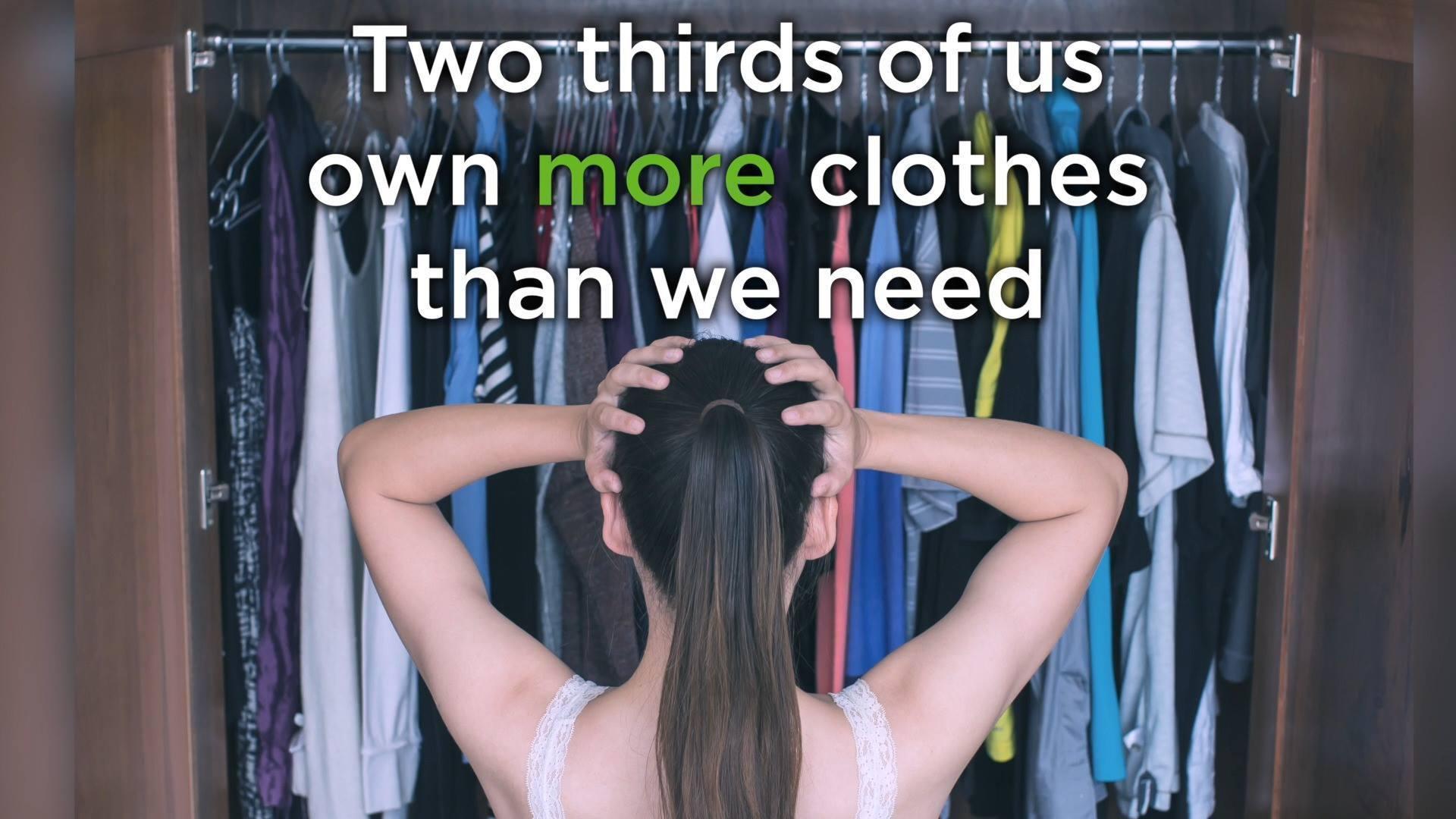

By Frances Lo
Do your clothes make you happy? Or, after the excitement of the shopping spree fades, does your new stuff tend to lose its in-store magic by the time it’s reached your wardrobe?
A new survey of international buying habits has found that we buy far more than we need and use. Two thirds of Hong Kong residents admit they own more than they need. The same is true for 60 percent of Chinese and more than half of German and Italian respondents. But the mindless overconsumption of fashion has become our cultural norm.
Online shopping fuels this overconsumption. It’s easier than ever to buy new clothes by clicking through social media feeds whenever you see something you like. And it’s a time consuming habit: The average Chinese consumer spends at least two hours online shopping every day.
The reasons for this are emotional and social. For many, comfort buys occur when people need to channel their anxieties. Shopping is a way to kill time, relieve stress and avoid boredom. But the cheap thrill of buying something new dies away pretty fast. Half of the people surveyed said that the immediate excitement of a shopping spree lasted less than a day. After the binge comes the hangover.
When they’re not shopping, around a third of the East Asian people surveyed admit feeling empty, bored or lost. What’s more, around half feel guilty about their shopping habits, sometimes hiding their purchases from others for fear of negative reactions or accusations of wasting money. Shopping does not make us happy. We already own too much and we know it.
So why do we shop? We are searching for excitement, looking to increase our self-worth, confidence and recognition. The American media activist and advertising critic, Jean Kilbourne, has commented about how deeply advertisers insinuate themselves by exploiting basic human desires like friendship, happiness and success in advertising for profit.
The result is “Stuffocation,” a term coined by British cultural forecaster James Wallman. It describes a state where people’s lives are trapped in a vicious cycle of working and accumulating products in order to keep up with the pace of consumerism. This fuels the anxiety of modern life; destroying the planet while keeping us from leading more imaginative, fulfilling lives. Materialism is eating us inside out.
So how do we stop it? Our survey showed that ads, promotions and 1-click buying functions are all designed to trigger impulse buying. The rate of buying increases the more companies speed up delivery. Therefore, the slower the buying process, the lower the desire to shop. To break free from the cycle of consumerism, we need to slow down.
Next time you find yourself about to buy something new online, give yourself a few minutes to think. Sleep on it and see if you still want it in the morning. When we switch off our phones and go outside instead of into shopping malls, we won’t buy so much.
The joy of life is ultimately defined by our relationships to each other and the connection we feel to the natural environment. Instead of stuffocating ourselves, let’s enjoy the genuine happiness that stems from leading a fulfilled life.
Frances Lo is a campaigner at Greenpeace Taiwan, working on overconsumption.

 233k
233k  41k
41k  Subscribe
Subscribe 
